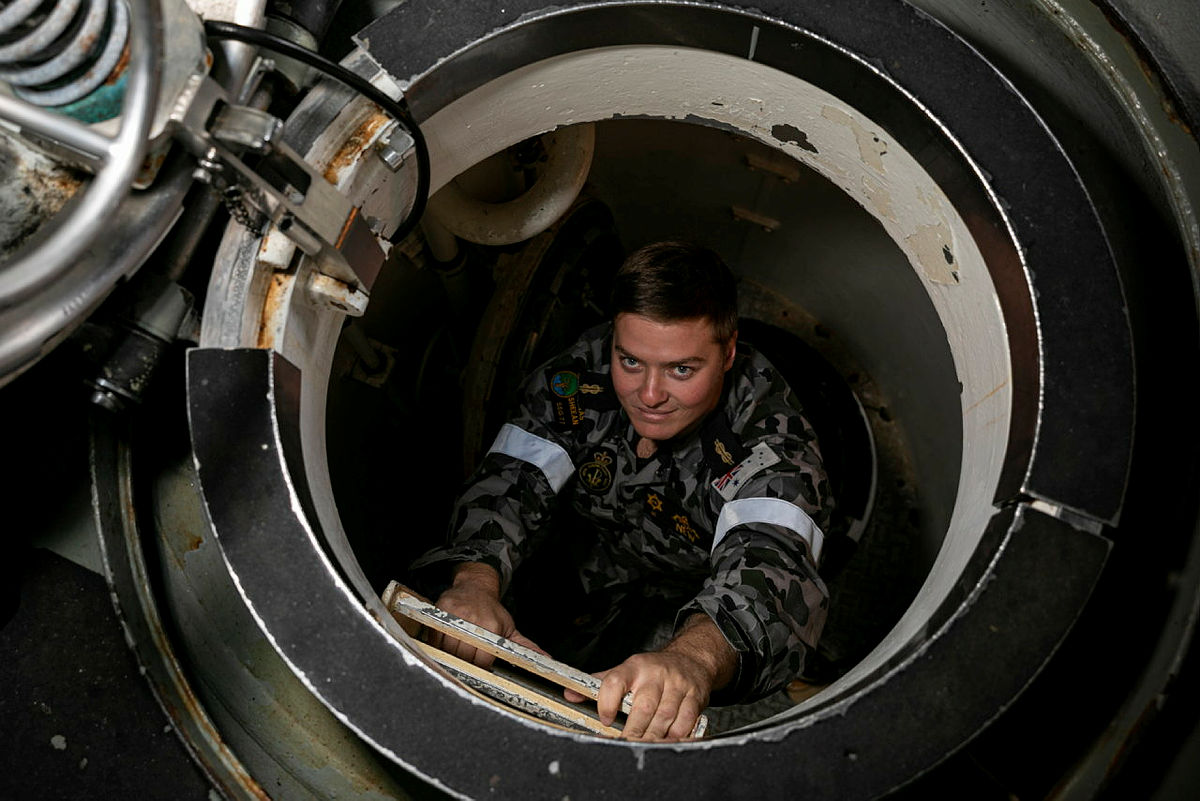Making Australia fit for AUKUS

The early days in any great undertaking can be chaotic. The AUKUS partnership between Australia, the United Kingdom and the United States was announced last September, and it may be a little premature to worry about progress after only a matter of months.
Yet, while AUKUS rests on a bedrock of past practice and cooperative behaviour, there are worrying signs that all is not progressing swimmingly. And when there are indicators of deeper issues, it’s better to intervene earlier rather than later.
Let’s look at the ambitions behind AUKUS: deepening defence ties with a focus on technology for joint operations and capability, including the development of nuclear-powered submarines for Australia, all to support the rules-based order and shared ideals.
There remains very much a sense that the US sees AUKUS as a way to provide Australia with a much-needed capability uplift, no less than to ensure the UK remains engaged in the world post-Brexit. There’s a lot of white space in the AUKUS statement—white space that officials are now working busily to fill.
In the defence and intelligence community, understandably, the focus is on what they know. And to be fair, the links between Australia and the US—and, more broadly, among the members of the Five Eyes intelligence-sharing group—are deeper than ever.
But statecraft and strategic capability are about much more than defence and intelligence. And when deep in the well, it’s hard for that narrow community to see what’s at the periphery, let alone what’s needed further afield. That’s especially true given the assumptions implicit about national capacity.
So, what are the indicators that things are tracking poorly with AUKUS?
First, and most recently, there’s the security agreement that Solomon Islands signed with China, which has raised alarm bells in Australia, the US and elsewhere. For decades, Washington, with Canberra’s encouragement, has regarded the South Pacific as Australia’s responsibility to manage.
That doesn’t mean hectoring Pacific island nations. It means providing smart, sensitive stewardship for regional stability; supporting the island nations and their concerns and aspirations; and making the arguments for and showing the benefits of free, open, liberal democracies as the best future for regional nations.
That the US found it necessary not simply to send, at short notice, Kurt Campbell, its point man on the Indo-Pacific, but to fast-track the re-establishment of its Solomons embassy reflects strong concerns that Australia has fallen short.
Last year, there was the naval procurement ‘dumpster fire’ sparked by Australia’s cancellation of its contract with French company Naval Group to build 12 conventional submarines. It wasn’t simply that the French submarine option was a concern; it was the switch to the nuclear option and relations with the French that were handled poorly.
Both these issues reflect a loss of capability and capacity in Australia’s foreign service, as well as a lack of respect and trust in the foreign service by Australian ministers. Australia’s foreign representation has been eroded for decades, leaving coverage of its own ‘backyard’ thin and ill-equipped to report on, let alone respond to, a much better funded, well-resourced Chinese posture.
And Australian defence capability and procurement processes are similarly dated, risking the need to prepare for a future that is ever foreshortened and an environment that is increasingly disrupted.
It’s not simply that ministers are frustrated; ministerial frustration is both a symptom of and a contributing factor to the growing incoherence of the process.
Rather, it reflects an inability on the part of the Australian government to build national capacity and depth. Technology, whether in the form of military capability or digital systems, is still seen as magic fairy dust. And there is mistaking expenditure for investment, without governance or stewardship—generally a result of political entitlement and a corrupted process.
As the ‘southern anchor’ of a Western alliance structure, Australia risks losing gravitas and strength. That’s to the detriment of all—not least our democracy and the future of every citizen in our nation.
For all that these indicators raise issues for AUKUS, it remains key to reversing an increasingly parlous situation for Australia and for the West. It is not too late for AUKUS to realise its ambition. But it needs better purchase and stronger foundations on the broad elements of statecraft.
That means, first and foremost, a truly bipartisan approach to uplifting national capability. It is too important to be used for partisan populist politics—an admittedly tough call during an election campaign, but that’s exactly when restraint is needed.
Second, civilian capability needs to be considerably uplifted across the board, including in central agencies. It cannot be subordinated to defence.
DFAT needs not simply rebuilding but development into a capability fit for the demands of a disrupted, technology-driven environment characterised by hybrid activity, with deep knowledge of its host nations. Scaling DFAT up to meet those demands won’t be easy and nor can the thinking, skills or capacity simply be outsourced to consultancies.
Third, a clear vision of Australia as a technologically enabled and creative state is necessary to realise the intent of AUKUS. The government needs better scaffolding for how research is funded, how the research endeavour works, and how technologies are realised.
Again, this is not a solely defence matter. Building a technologically adept nation is more than national security and the STEM fields of science, technology, engineering and mathematics. Australia needs the depth of engineering capabilities found in the US national labs and an open, freewheeling approach that encourages creativity.
AUKUS can assist with each of these, helping Australia to be better placed to deliver on its part of the agreement.
But admitting that we need to do much more heavy lifting at a national level is the necessary first step and will help us get the enablers we need. There’s little point winning the technological contests of the 2040s if we lose the geopolitical contests of the 2020s.